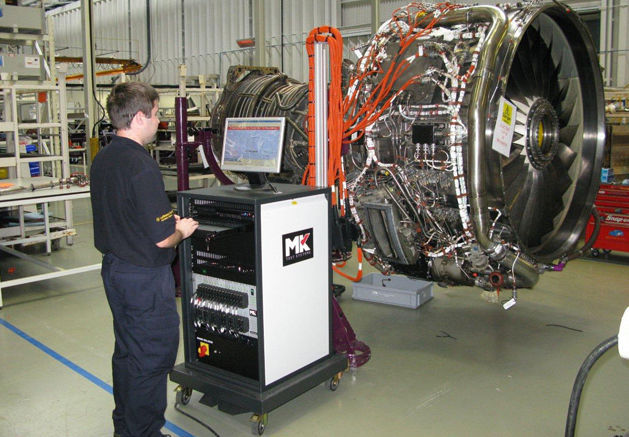Thames Valley: Reading to be fastest-growing 'city' in UK until 2021

Reading is forecast to be the fastest growing city/town in the UK, with 2.3% Gross Value Added (GVA) growth per year over the period 2018-2021, according to EY’s Regional Economic Forecast.
Reading is back in the lead after last year’s forecast predicted Manchester to grow at the same rate. This year’s forecast puts Manchester in second place, with forecast GVA growth of 2.2% GVA growth, and London is in third position with 2.1%.
The Thames Valley region is not far behind with expected economic performance of 1.9% GVA until 2021, albeit this is lower than last year’s forecast of 2.3% until 2020. Oxford has a GVA forecast of 1.0% and the broader South East matches UK average growth of 1.7%.
Both Reading and the Thames Valley are expected to outpace UK average growth of 1.7% as EY’s forecast predicts slower growth across all regions and cities.
Whereas in previous reports over the past three years, the South East, South West and East, have been the fastest-growing regions of the UK, EY’s latest report says these regions have all slowed relative to the rest of the country. In particular, slower growth in the services sector seems to have pulled back growth rates in the southern regions.
Reading’s dominant information and communications sector gives rise to its favourable outlook – the sector comprises almost a quarter of the town’s total GVA and is forecast to expand by 3.5% annually over the next three years. Information and communications will account for almost one in every three jobs created in Reading over the period to 2021, according to the forecast.
Information and communications, however, isn’t the most labour-intensive sector. As a result, Reading’s table-topping GVA doesn’t translate into table-topping employment growth, as Reading’s employment outlook at 0.9% is surpassed by Manchester and Birmingham. Although Reading’s employment growth does still outpace the UK average of 0.5%.
Richard Baker, managing partner at EY in the Thames Valley, said: “The pace of economic growth in Reading and the Thames Valley is expected to continue accelerating over the next three years. This reflects the strengths of the region in terms of its highly skilled workforce, the employer base ranging from world-leading corporates through to fast-growth entrepreneurs, and the region’s sectoral composition, which in the case of the information and communications sector, is expected to drive growth via higher productivity. These conditions mean Reading and the Thames Valley are expected to continue to grow faster than other areas of the UK.”
UK rebalancing
UK growth is set to be more geographically balanced over the next three years. However, this rebalancing will principally be the result of slower growth in the services sector, which will have a detrimental impact on the south of the UK, rather than other regions ‘catching up’ through an improved performance.
The UK economy is growing slower than its historic trend – with annual growth of 1.7% a year to 2021, more than half a point lower than trend. In the three years since our first regional forecast, there has been no reduction of the imbalances between the South of England and the rest of the country.
Core cities outperforming the rest
EY’s analysis of eight core cities in the UK (Birmingham, Bristol, Cardiff, Leeds, Liverpool, London, Manchester and Newcastle upon Tyne) saw growth of 2.2% annually on average between 2015 and 2018, whereas large towns grew at 1.8%. EY’s forecast expects this distinction to continue with growth rates of 1.8% for core cities and 1.6% for large towns over the next three years.
According to the forecast, the UK’s strongest performing cities will continue to grow faster than average, however the gap to the slower growing areas will be less than in the recent past with little more than a 1% difference in average annual growth rates between the fastest and slowest growing locations.
Employment growth expected to slow over next three years
EY expects the rate of UK employment growth to be around 0.5% per annum on average over the next five years, compared to over 1.4% in the five years to 2018 – a major change in pace. A slowing economy, expected reduction in immigration and technological change are all contributing to this expected significant shift in the labour market over the coming years.
The report says a slowdown in the retail sector, especially on the high street, also poses significant challenges for smaller towns and communities as retail tends to be a major employer in these locations. There are also similar challenges facing the manufacturing sector. The sector has grown over the last three years and employment has increased as a result. However, it is expected to grow more slowly over the next three years as technology is used to drive productivity in a more challenging labour market.
Baker added: “This report demonstrates how geographical imbalances not only remain within the UK economy, but are actually widening at a local level within regions. The Thames Valley’s fragmented nature will make its smaller towns and villages more vulnerable to economic downturns and it is therefore critical that we start to develop policy now to drive greater balance and security in economic activity across the whole of the UK.
“This is an opportunity for geographic rebalancing to an extent, but the national approach to geographical rebalancing must identify an economic policy approach for towns to ensure that smaller places, including the more remote parts of regions, can benefit from the success of the faster-growing cities. Improving connectivity, both physical and digital, will be critical in ensuring the economy is one in which everyone has a chance to participate fully, regardless of location. Brexit makes this policy even more important, both to maximise growth but also to support the UK’s transformation to be in a position to prosper after Brexit.”














